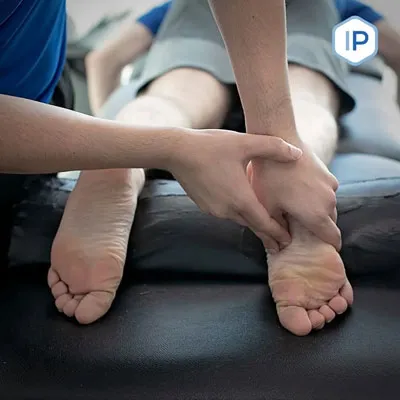Running a marathon is tough both mentally and physically whether you are an experienced marathon runner, or you are planning on training for your first marathon. How you prepare and train for your marathon is key in how much you will enjoy your big day! The first thing to work on it making sure you don’t break down with injury and that you get to the starting line in your best shape. Our physiotherapists in Leeds can help you with all your running injuries needs and help you navigate your way to a successful marathon.
Here are a few tips to avoid getting injured whilst training for a marathon:
- GRADUALLY increase your mileage- Your body’s tissues need to be prepared for all the impact that amount of running will produce and increasing the distance and intensity of your runs too quickly will often result in injury as your body cannot cope with the sudden changes and haven’t had time to adapt to the new requirements you have given your body to cope with.
- INTEGRATE some form of cross training into your routine to offload your joints but still gain the cardiovascular benefits. Using other less impact activities such as swimming, cycling, rowing and even walking will still improve your ability to work your muscles and improve the function of your heart and lungs and can then be used as a tool to get fitter without straining the joints in the same way you would with running. Its a win – win!!
- STRENGTH AND CONDITIONING– your muscles need to be strong enough to support your joints whilst running, and therefore avoid injury. We have research that shows by keeping your hip, knee and calf muscles strong (and if not that strong in the first place – get them stronger) it can reduce your likelihood of getting injured by 50%. If you don’t know how to put together a good strength and conditioning program for running then please ask us – we are experts at this and have done it lots for people preparing for 10k up to marathons even ultramarathons.
- RECOVERY– ensure you have sufficient rest between long runs and sessions to allow your body to recover before your next one. Spacing out your workouts and also allowing for harder and easier days in your schedule is key to prevent overtraining and injuries. It is logical to think that after a long run (which may be the longest you have ever run in your life – you may need more than just one day of rest after for example. This is where going for an easy swim can make a big difference. Active recovery helps your body flush out the muscles. Running however would just make the muscles more tired as they have to heal and recover after new and harder efforts.
- NUTRITION– Throughout your training, your body needs more nutrients and more energy both to do the training and recover properly. Making sure your diet contains lots of healthy fruit and veg as well as a healthy source of protein will aid your repair and recovery processes. Another important thing is to make sure you have a healthy snack containing protein and carbohydrates within half an hour of finishing your run (e.g a milkshake/protein shake) to help you recover faster and be ready for your next run.
- GOOD TRAINERS– making sure your shoes fit you and are comfortable before you start increasing your training is important. Shoes also wear out and so making sure the cushioning in the shoes isn’t worn out before you start can be important. Inadequate footwear can lead to niggles such as knee pain and plantar fasciitis – Speak to your physio or consult a good running specialist shop and they should be able to help you select the right footwear to get you through the training.
- PHYSIOTHERAPY/SPORTS MASSAGE- If you are having any niggles and even pain before you start. Getting them checked out and sorted early on is important. Starting to put more pressure on your body will only highlight these issues more. Our expert Physiotherapist will assess you and provide you with exercises and therapy specific to your needs. During training, a sports massage can keep your muscles loose and keep niggles at bay and stop them from building up.
In summary, running a marathon takes a lot more than just going out running a few times a week! It takes planning, dedication and additional strength work to do it injury free! If you need any help with any aspect of the training or injuries please get in touch.

